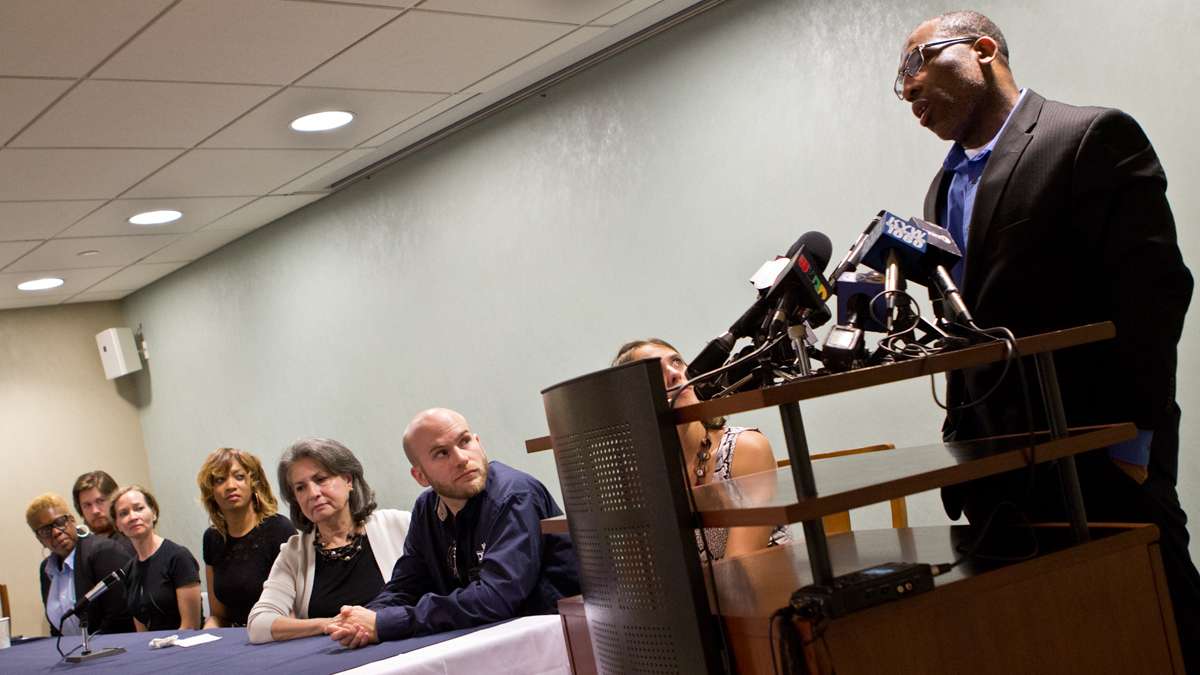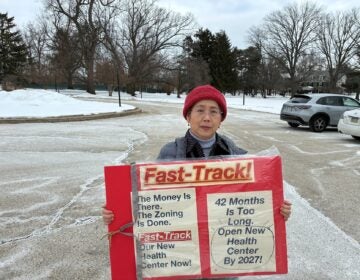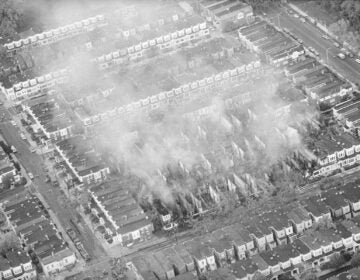Release of Philly man exonerated by DNA prompts scrutiny of other local cases

Anthony Wright, 45, was acquitted of the 1993 murder of Louise Talley, 77, and released from prison Tuesday evening. Wright speaks to press Wednesday with the jury who rendered the not-guilty verdict by his side. (Kimberly Paynter/WHYY)
The New York-based Innocence Project is calling for an independent audit of all the murder cases three former Philadelphia homicide detectives worked on after inmate Tony Wright was exonerated and released this week.
“If they want to do the right thing in Philadelphia, they sure as heck shouldn’t let Seth William’s office investigative themselves,” said Peter Neufeld, co-director of the Innocence Project. “That’s leaving the hen house in the hands of the foxes.”
Neufeld believes there may have been improper conduct in the way three retired detectives investigated other murder suspects now serving life sentences, since Neufeld contends the investigators framed Wright and fabricated evidence to win a conviction.
Imagine, Neufeld said, that the detectives who worked on the Wright case were cashiers at a bank.
“And it had been determined that they had stolen funds on a transaction, a bank vice president wouldn’t say, ‘oh, I guess the teller did it just one time,’ of course not. The bank would investigate that teller for all other transactions,'” Neufeld said. “What we’re saying is, in criminal justice, when life and liberty is at stake, the same rules should apply.”
A DNA test led to the release of 44-year-old Wright after he served more than two decades following his conviction on murder charges in 1993.
The DNA evidence implicated another man who is now deceased.
Wright was freed Tuesday after his acquittal in a second trial — though it’s exceedingly rare for prosecutors to seek another trial in the face of DNA evidence pointing to another suspect. In fact, Neufeld said since the Innocence Project was founded in 1992, this case was the first ever that made the defense team re-try an inmate following new forensic evidence that vindicates the accused.
And the decision seems to have struck a nerve with Neufeld.
“It’s exactly the wrong kind of moral core you want in your prosecutors,” Neufeld said. “I’ve dealt with prosecutors all over the country, and, unfortunately, these are some of the most venal, selfish and mean-spirited that I’ve seen north and south of the Mason-Dixon line.”
Wright’s defense attorneys argued that police used physical intimidation, berated their client for hours and coerced him to confess to the rape and murder of 77-year-old Louise Talley, who lived in the Nicetown section of North Philadelphia.
“After hours, he cracked, and they told him he’d be able to go home, he finally said, ‘I’ll sign the darn thing,’ and that was that,” said Sam Silver, one of Wright’s defense attorneys.
Neufeld said the jury believed the detectives at the time employed some troubling tactics.
“One can easily infer from their verdict that they planted evidence and framed an innocent man,” Neufeld said.
The Pennsylvania chapter of the Innocence Project said it is working on five other cases involving the retired detectives in question — Manuel Santiago, Frank Jastrzembski and Martin Devlin.
On the stand, Santiago denied accusations that detectives concocted the confession, saying that Wright confessed on his own “without resistance.”
There is no recording of the statements from Wright, since Santiago said under oath that it was his practice not to tape witness interviews.
Cameron Kline, spokesman for Philadelphia District Attorney’s Office, said it will investigate any “specific evidence of misconduct” lodged at police detectives.
And though a jury acquitted Tony Wright of all charges, Kline said the DA’s Office still believes that “the evidence was sufficient to prove Anthony Wright participated in the murder of Louise Talley.”
WHYY is your source for fact-based, in-depth journalism and information. As a nonprofit organization, we rely on financial support from readers like you. Please give today.




